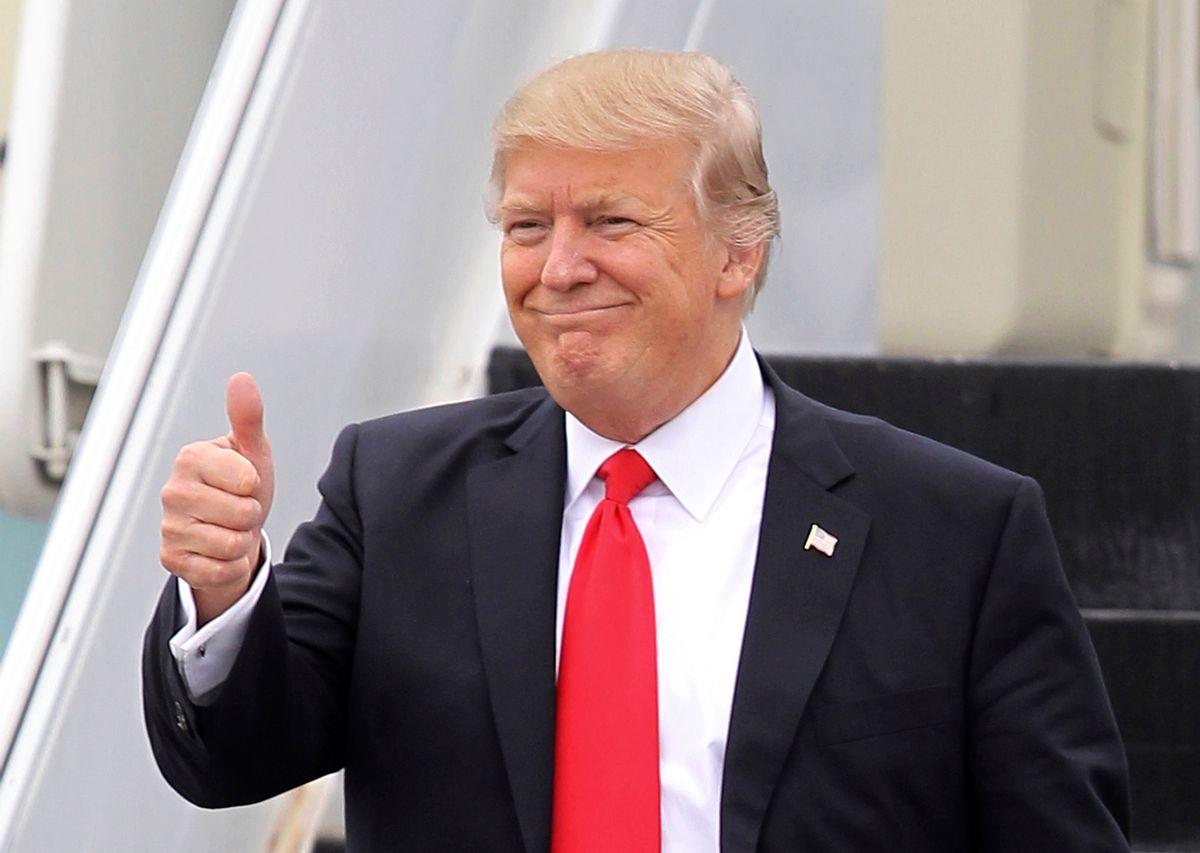Republicans are finally starting to publicly squirm at the behavior of their party’s leader. After all, it’s one thing for the President Donald Trump to coddle white supremacists, demonize immigrants and brag about grabbing “pussy,” but for the pro-big-business faction of the Grand Old Party, it’s an entirely different and utterly unacceptable thing for the head of the GOP to toss a wrench into the global trade machine.
As of Friday, the U.S. has begun charging a 25 percent tariff on steel and a 10 percent tariff on aluminum imported from Canada, Mexico and the European Union. Canada and Mexico have already announced retaliatory tariffs on U.S. aluminum and steel, beef, pork, coffee products, plywood, candy, cheeses, apples, grapes and other goods. The European Union has a 10-page list of its own proposed tariffs against U.S. goods and is preparing a complaint against the U.S. at the World Trade Organization.
With the steel and aluminum tariffs in effect, the U.S. is now involved in tit-for-tat trade disputes on four fronts — Canada to the north, Mexico to the south, China to the east and Europe to the west.
China warned Sunday that any deals made from ongoing trade-dispute talks between Beijing and Washington would be suspended if Trump follows through with a separate trade threat.
“If the United States introduces trade sanctions, including a tariff increase, all the economic and trade achievements negotiated by the two parties will not take effect,” said the Chinese government statement released through the official Xinhua News Agency and reported by the Associated Press.
The president, who has the unilateral power to impose tariffs under the auspice of protecting national security, wants to impose a 25 percent import duty on $50 billion worth of Chinese technology products in response to complaints China steals U.S. intellectual property, or forces U.S. companies doing business in China to give up rights to their technology.
China has also it would retaliate by imposing $50 billion worth of tariffs on U.S. goods, including aircraft, cars and agricultural products like pork and soybeans. Soybeans are grown primarily in states that supported Trump.
The U.S. Chamber of Commerce, the world’s largest business group and a stalwart supporter of Republican economic policies, estimates that Trump’s trade policies could cost 2.6 million jobs, and it warned that most of the pain could go to Republican stronghold regions of the country.
“The current approach will deliver the greatest economic pain to precisely those areas of the country that the administration and the Congressional majority are counting on for continued political support,” U.S. Chamber of Commerce President Tom Donohue said in an internal memo obtained by CNNMoney.
Mexico’s Economy Secretary Ildefonso Guajardo also hinted that his country’s tariffs are aimed at influencing the U.S. elections.
“It sends a clear message that this kind of thing does not benefit anybody,” Guajardo said. “The effect [of Trump’s trade war] will fall on voters and citizens that live in districts where the people have a voice and vote in the Congress.”
Mexico’s duties on pork products, for example, will adversely impact deep-red states like Iowa, North Carolina and Oklahoma. Europe’s possible agricultural import duties on corn would also hit red rural regions more than blue urban ones.
Senator Lamar Alexander R-Tenn., has called Trump’s steel and aluminum tariffs a “big mistake.” Deep red Tennessee is home to three auto assembly plants owned by Nissan, Volkswagen and General Motors, and 350,000 manufacturing workers.
“These tariffs will raise prices and destroy manufacturing jobs, especially auto jobs, which are one-third of all Tennessee manufacturing jobs,” Alexander said hours before the tariffs went into effect Friday.
Over in Colorado, Pete Coors, chairman of Molson Coors and a staunch Republican who raised money to help get Donald Trump elected, told CNN that “the tariff is basically a tax on people who use aluminum.”
The chorus of Trump’s critics from the left has been blaring ever since he won the White House. But now, the president is messing with something that even Republicans find problematic. Whether Trump’s trade policies will help Democrats in the midterm elections will largely depend on how much economic pain producers and consumers feel, and whether a connection can be made between that pain and GOP trade policy under their party leader.



Shares